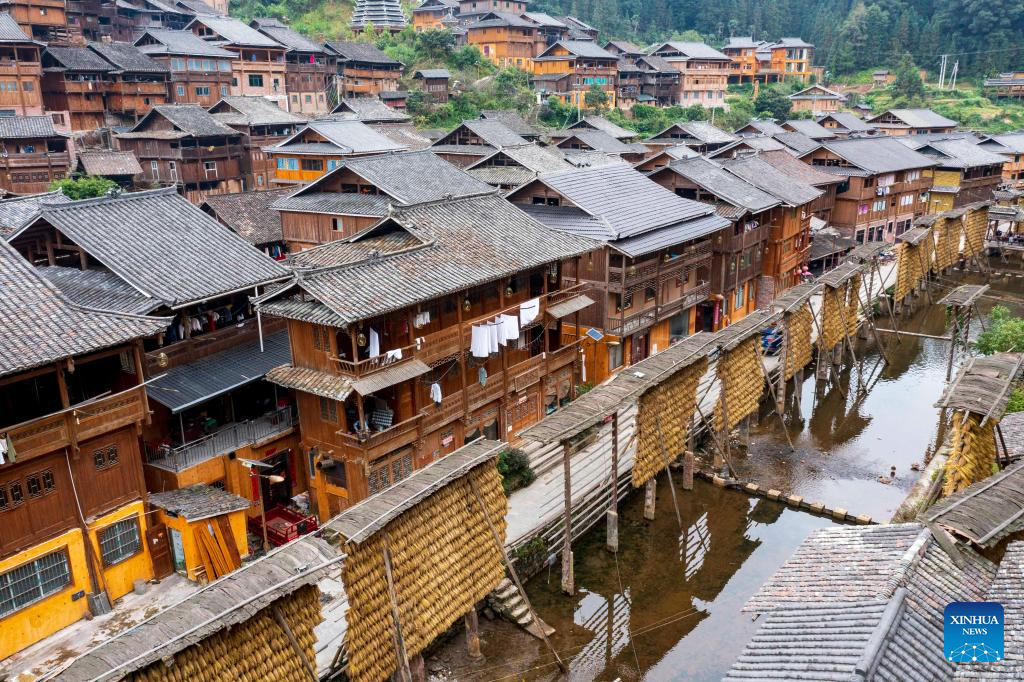Millennium-old agricultural legacy flourishes in southwest China
2024-11-17 21:14 Xinhua

An aerial photo taken on Oct. 21, 2024 shows a view of Zhanli Village, Congjiang County, southwest China's Guizhou Province. (Photo by Wu Dejun/Xinhua)
GUIYANG, Nov. 16 (Xinhua) -- For more than 1,400 years, an ethnic minority in Congjiang County, southwest China's Guizhou Province, has been inheriting a traditional agricultural practice, cultivating rice in terraced fields while raising fish and ducks among these plants.
Zhanli Village, surrounded by lush mountains, is home to more than 800 ethnic Dong residents comprising 190 households, and is one of the primary areas in Congjiang where this traditional farming method is promoted.
With limited arable land resources, the villagers have adapted to local conditions, developing a unique farming approach that has been passed down for generations.
Locals typically sow rice seeds during the Grain Rain period, the sixth of the 24 solar terms in the traditional Chinese lunar calendar, as temperatures rise. Once the seedlings start growing, they are transplanted into the paddy fields along with fish fry. When the fish reach two to three fingers wide, ducklings are introduced into the fields.
Wu Guoping, an expert from the county's agriculture and rural affairs bureau, explained that the Dong people have lived in harmony with the seasons by adapting to the growth characteristics of different species, thereby saving land resources and enhancing the efficiency of agricultural production.
The paddy fields provide both a habitat and food for fish and ducks, while in return, the fish and ducks aerate the soil, and eliminate pests and weeds, while their droppings serve as nutrients for the rice, thereby achieving a symbiotic relationship, Wu added.








